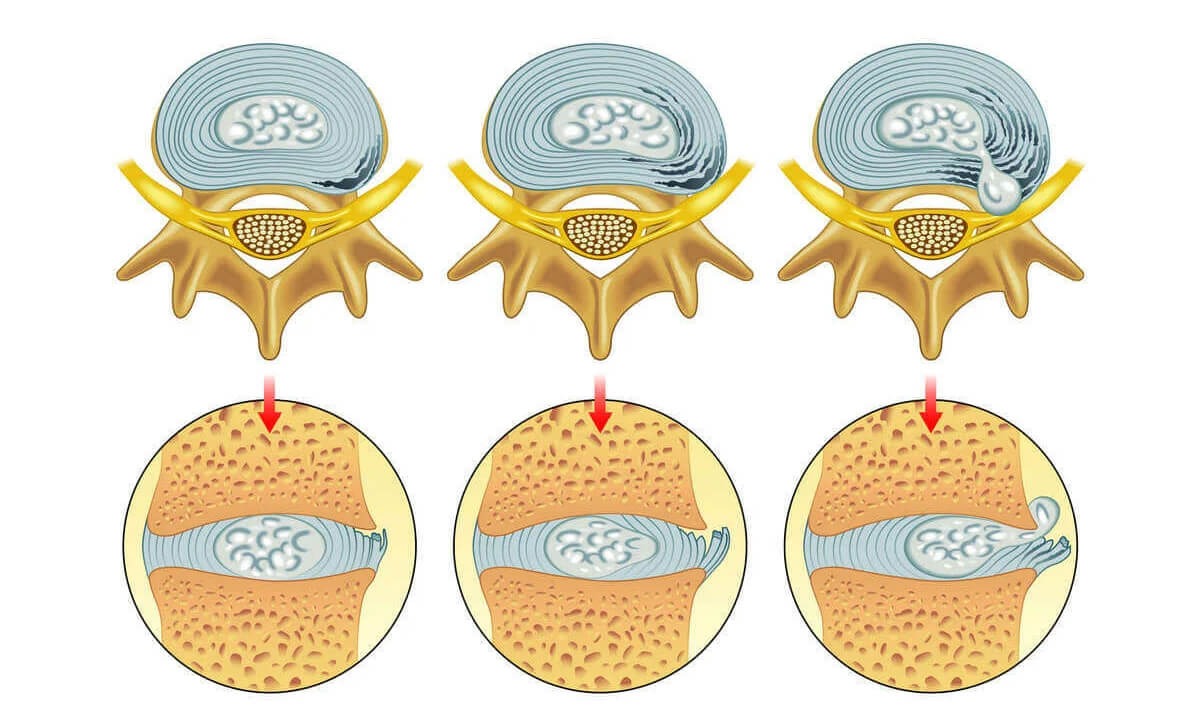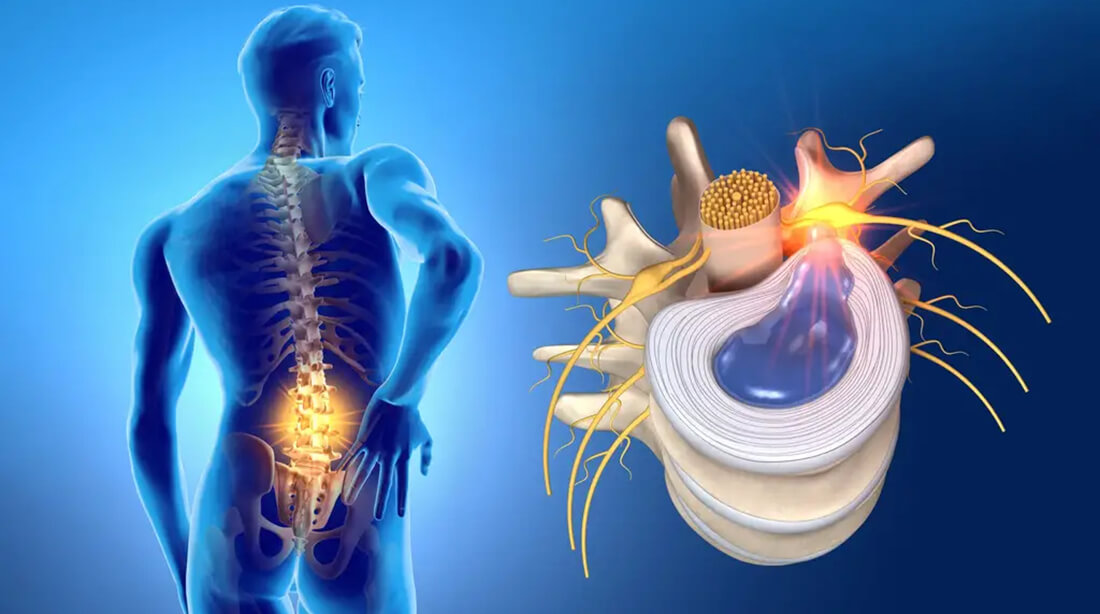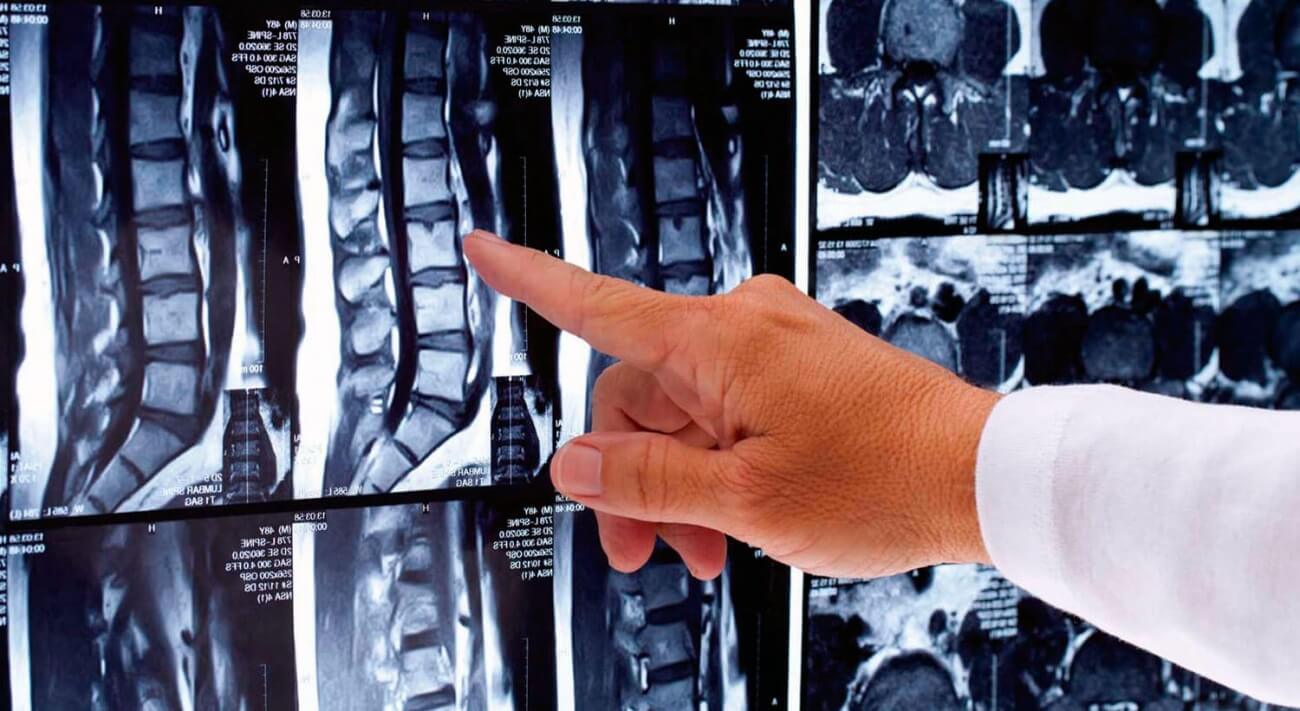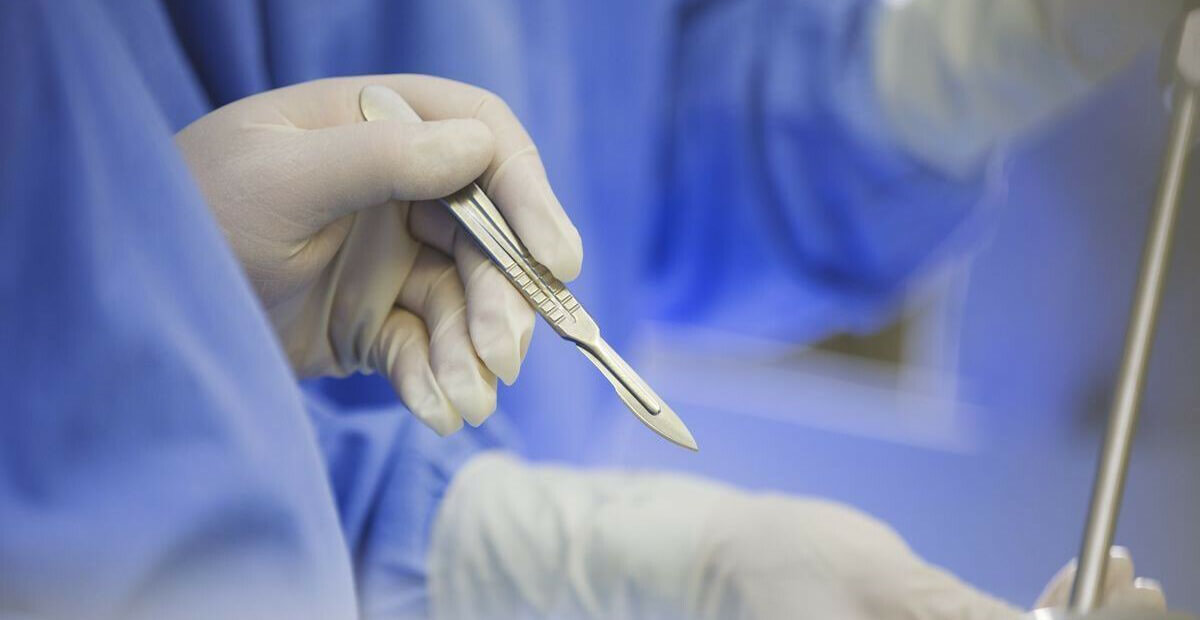Calls for Ukraine
Calls for Europe
Calls for USA

Herniated disc or intervertebral hernia is a pathology of the musculoskeletal system, which is characterized by the protrusion of part of the intervertebral disc into the spinal canal. The most common localization of a hernia is the lumbosacral region, however, vertebral hernia of the cervical and thoracic regions are also common. Most often, this disease is diagnosed in 40-50 years.
Such violations in the structure of the spine do not always lead to a deterioration in well-being. Quite often, a person is not even aware of the presence of the disease. However, the disease can also be accompanied by pain, limited mobility of the spine, loss of sensation in various parts of the body, and even paralysis of the limbs.
Modern medicine offers a fairly large range of effective methods for the treatment of vertebral hernias, which allow a person to return to normal health. The MedTour platform will help you find a medical center where you can get diagnosed and choose the most effective treatment option.
The process of occurrence of the disease is based on the wear of the intervertebral disc associated with age. In the process of aging, the disc loses its elasticity, which creates the prerequisites for its deformation. In addition, a number of factors contribute to the development of the disease, among the main ones are:
Also, degenerative processes in the intervertebral disc can develop more intensively with:

The division into species can be according to the place of localization:
Also, depending on the characteristics of the protrusion of the disc, there are: medial hernia of the spine, diffuse and dorsal hernia.
In addition, there are several stages of pathology:
Sequestered hernia of the spine is the most serious form of the disease, which most often manifests itself with expressive symptoms and requires mandatory treatment.

Signs of an intervertebral hernia depend both on its size and on the place in which it developed:
The appearance of symptoms and their strength depend on the stage of the disease and on which side the disc protrudes, whether there is pressure on the nerves or the spinal cord.
Without treatment, with the development of the disease, constant severe pain may occur, it is possible to pinch the intervertebral hernia, and limit the mobility of the spine. Sometimes, as complications, muscle weakness, dizziness, paralysis of the legs and other manifestations associated with a violation of the innervation of various parts of the body can be observed. Such conditions require mandatory treatment.
With this pathology, doctors do not recommend:
Also, do not wear tight corsets without a doctor’s recommendation. Such a corset can relieve pain, but prolonged use of it can lead to muscle weakness.
It is very important not to ignore the symptoms of the disease and not self-medicate. It is advisable to undergo an examination as soon as possible and choose an adequate treatment.

The examination that doctors prescribe for this disease will help to find out the condition of the intervertebral discs, bone elements of the spine, and to identify compression of nerve endings and blood vessels. Most often, for this purpose, specialists prescribe:
Non-invasive MR myelography, invasive CT myelography, multispiral computed tomography (MSCT) may also be needed.
If a herniated disc is diagnosed, treatment is selected depending on its size, location and other characteristics. In the early stages, doctors usually recommend treating herniated discs without surgery. Conservative therapy includes:
With spinal hernia, conservative treatment helps in approximately 70-80%. If therapy fails, removal of the intervertebral hernia is required. Usually the need for this arises when compression of the spinal cord or nerve endings occurs. It doesn’t matter if it is a disc displacement in the lumbar, thoracic region or an intervertebral hernia of the cervical region, surgical treatment allows to achieve the desired result.

Today, there are quite a few different operational techniques that are used depending on the characteristics of the condition. Classical open discectomy is rarely used today due to its traumatic nature. Instead, endoscopic techniques and microsurgery are used.
To choose the optimal method of spinal hernia surgery, contact the clinics that specialize in the treatment of such diseases. The MedTour platform will help you find a good clinic that will help you solve your health problem.
The price of spinal hernia removal can vary quite a lot and depends on many factors. First of all, the order of prices varies depending on the country in which the operation will be done. So, for example, in Turkey the cost of surgical treatment of this disease will be from $3.000, in Germany – from $1.000, in Israel – from $18.000.
In addition, pricing is influenced by which clinic you will choose and which doctor will perform the operation. As a rule, the more prestigious the clinic and the more famous the doctor, the more expensive their services will be. And of course, it is important which technique will be chosen, for example, for endoscopic hernia removal, the price will differ from laser removal.
Would you like to get more specific information on prices and learn more about different treatment options? The medical coordinator of MedTour will orient you on the cost and answer your other questions.
The MedTour platform cooperates with the best clinics that treat this disease in Turkey, Ukraine, Germany, Spain, India, South Korea and other countries. We will help you choose a medical institution that uses the latest techniques and employs experienced professionals.
A complete list of clinics that treat herniated intervertebral disc, which are presented on our website, you can find here. Or you can get comprehensive information from the medical coordinator of MedTour.
In order for the treatment to be effective, it is very important to consult a good doctor. On the MedTour platform, you can find leading experts in this field who have extensive experience and a good reputation. For example, you can contact the following doctors:
Would you like to know more about the best herniated disc doctors? Send us a request for a free consultation. We will help you choose the specialist that best suits your needs and solve your health problems.
Please rate the work of MedTour
